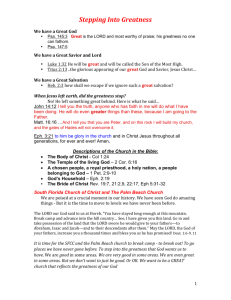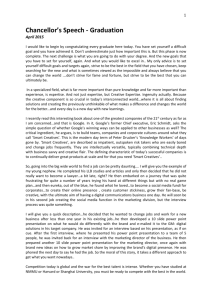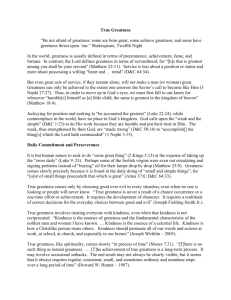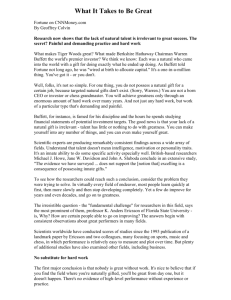What Makes The Great Great
advertisement
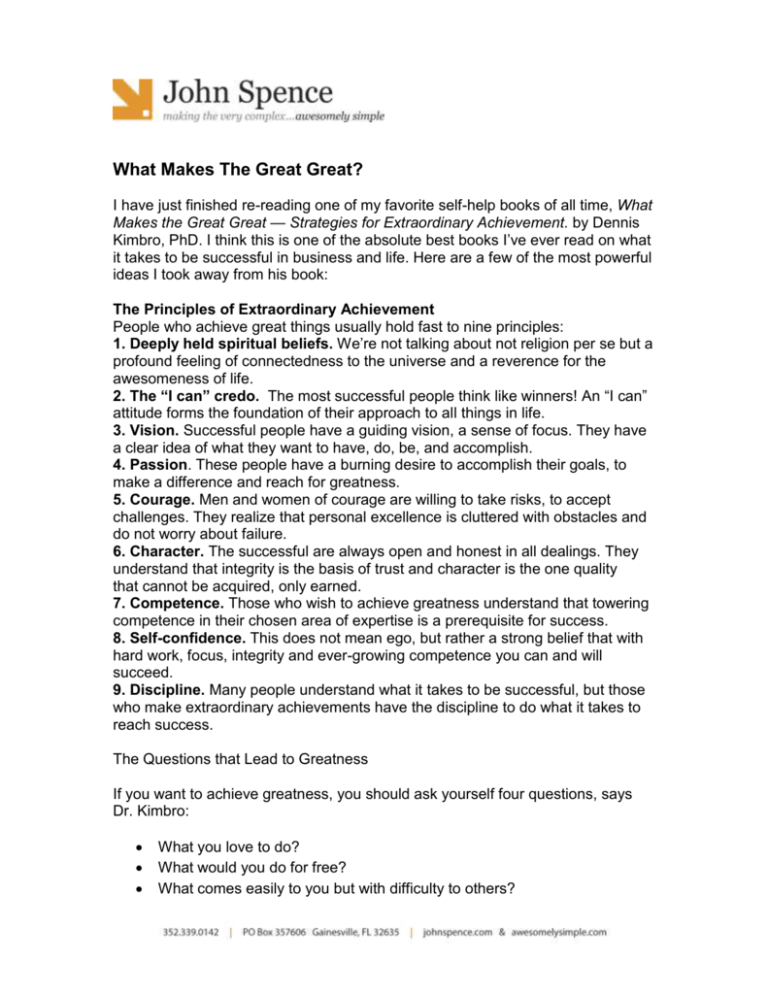
What Makes The Great Great? I have just finished re-reading one of my favorite self-help books of all time, What Makes the Great Great — Strategies for Extraordinary Achievement. by Dennis Kimbro, PhD. I think this is one of the absolute best books I’ve ever read on what it takes to be successful in business and life. Here are a few of the most powerful ideas I took away from his book: The Principles of Extraordinary Achievement People who achieve great things usually hold fast to nine principles: 1. Deeply held spiritual beliefs. We’re not talking about not religion per se but a profound feeling of connectedness to the universe and a reverence for the awesomeness of life. 2. The “I can” credo. The most successful people think like winners! An “I can” attitude forms the foundation of their approach to all things in life. 3. Vision. Successful people have a guiding vision, a sense of focus. They have a clear idea of what they want to have, do, be, and accomplish. 4. Passion. These people have a burning desire to accomplish their goals, to make a difference and reach for greatness. 5. Courage. Men and women of courage are willing to take risks, to accept challenges. They realize that personal excellence is cluttered with obstacles and do not worry about failure. 6. Character. The successful are always open and honest in all dealings. They understand that integrity is the basis of trust and character is the one quality that cannot be acquired, only earned. 7. Competence. Those who wish to achieve greatness understand that towering competence in their chosen area of expertise is a prerequisite for success. 8. Self-confidence. This does not mean ego, but rather a strong belief that with hard work, focus, integrity and ever-growing competence you can and will succeed. 9. Discipline. Many people understand what it takes to be successful, but those who make extraordinary achievements have the discipline to do what it takes to reach success. The Questions that Lead to Greatness If you want to achieve greatness, you should ask yourself four questions, says Dr. Kimbro: What you love to do? What would you do for free? What comes easily to you but with difficulty to others? How do others view your talents and gifts? As I read these questions, he is really asking what are you exceptionally good at, that you absolutely love to do and that is highly valuable in the marketplace? Where the answer to those three questions intersects is where you can build a highly successful life and career. Helping Others Helps You Dr. Kimbro also outlines his Seven Laws of Success. Although all seven are vitally important, I would like to focus on one that I have used to form my own personal philosophy of success: The Law of Reciprocity. According to Dr. Kimbro, the most successful men and women in our society are those who have helped the greatest number of people to achieve their objectives. They build a vast reservoir of goodwill and, in turn, will be compensated for having aided so many others. I have based my life on this philosophy, believing, as the old quote says, “You can have anything that you want, if you just help enough other people get what they want.” I know that none of this sounds particularly revolutionary, and that it takes a great deal of thought, preparation and hard work to actually live the things I’ve just outlined. But the truth is if you work on these issues every single day of your life and try to do as much of them as possible you will be doing exactly what is required to achieve the success you desire. Byline: John Spence has been recognized as one of the top 100 business thought leaders and as one of the top 500 leadership development experts in the world. He is an international keynote speaker and management consultant and has written five books on business and life success. www.johnspence.com 2



